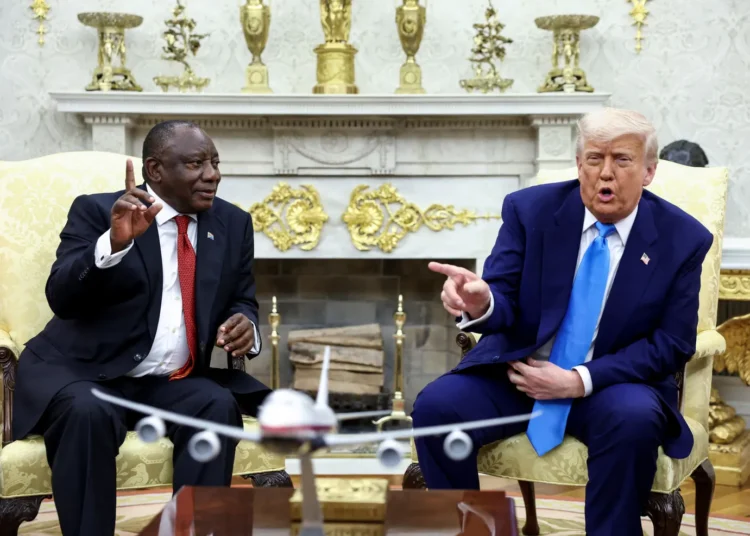South Africa is urgently implementing measures to shield exporters from the impact of a 30% tariff imposed by U.S. President Donald Trump, the highest levied on any African nation alongside Libya and Algeria. The tariffs, set to take effect on August 8, threaten significant job losses in the automotive and agricultural sectors, with the South African Reserve Bank estimating a potential 0.69% GDP growth reduction and a 15% rand depreciation.
The government launched an “Export Support Desk” on Friday to guide exporters toward alternative markets in Africa, the Middle East, and Asia. A financial support package for affected companies is expected to be detailed soon, potentially leveraging the Land Bank’s $83 million agricultural fund. However, trade experts like Donald MacKay of XA Global Trade Advisors doubt the measures’ effectiveness, noting the U.S. market’s unique depth and the difficulty of replacing it.
President Cyril Ramaphosa, who visited the White House in May, insists South Africa will continue pressing the U.S. for tariff relief while accelerating market diversification. He emphasized that South African imports benefit U.S. consumers through choice and cost. However, Trump’s criticisms of South Africa’s policies and crime rate have strained negotiations, which faltered despite months of efforts.
The tariffs have ignited political controversy. The Democratic Alliance, a coalition partner, accused the African National Congress of mishandling talks, pointing to the expulsion of ambassador Ebrahim Rasool in March as a diplomatic failure. International Relations Minister Ronald Lamola dismissed these claims, asserting ambassadors don’t negotiate trade deals. Trade Minister Parks Tau remains optimistic about lowering the tariff, citing recent U.S. encouragement to submit an enhanced offer.
While 35% of South Africa’s U.S. exports, including platinum and pharmaceuticals, are exempt, agriculture—particularly citrus, table grapes, and wine—faces severe impacts, especially in regions like the Western Cape.






























































